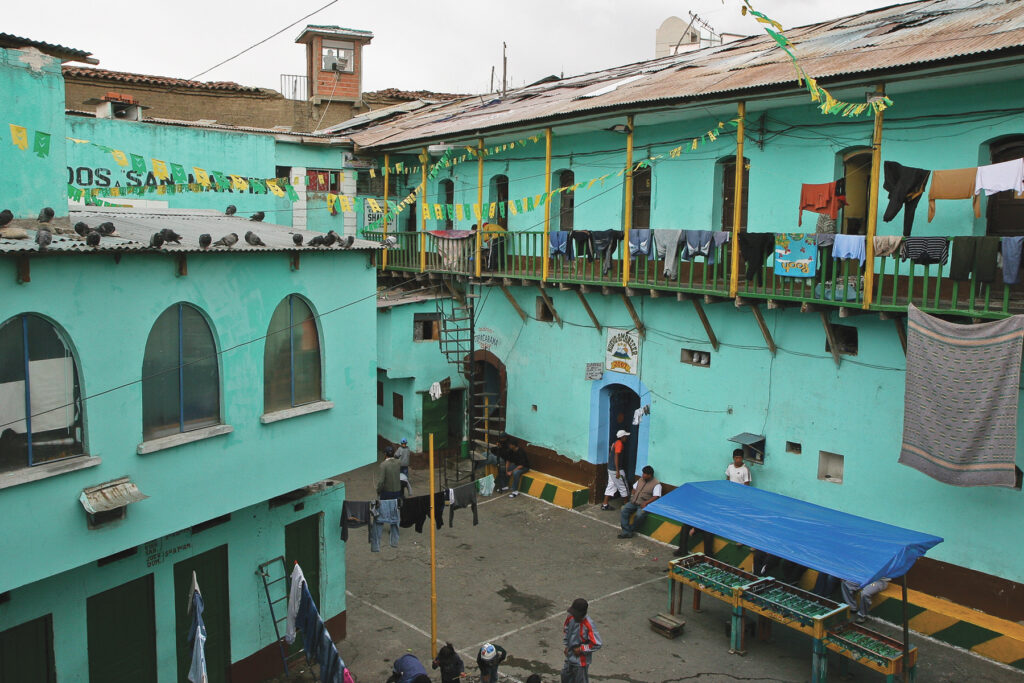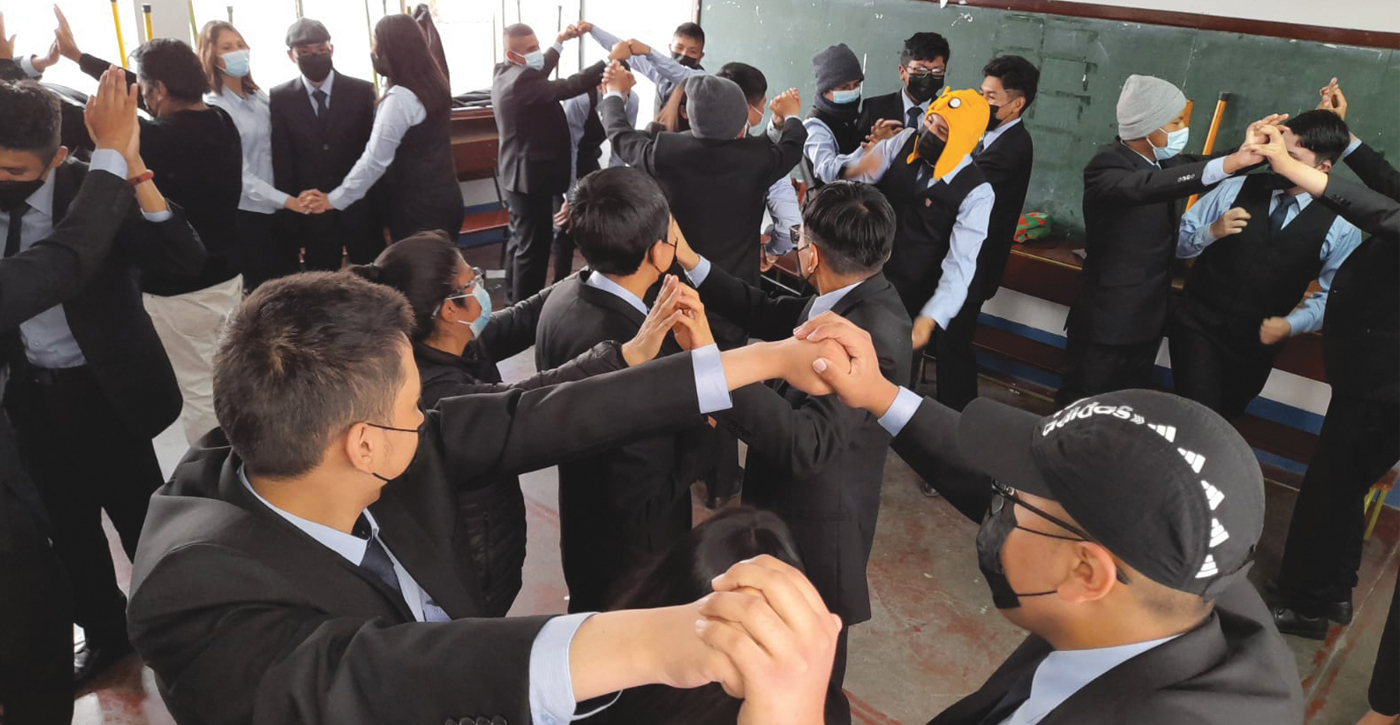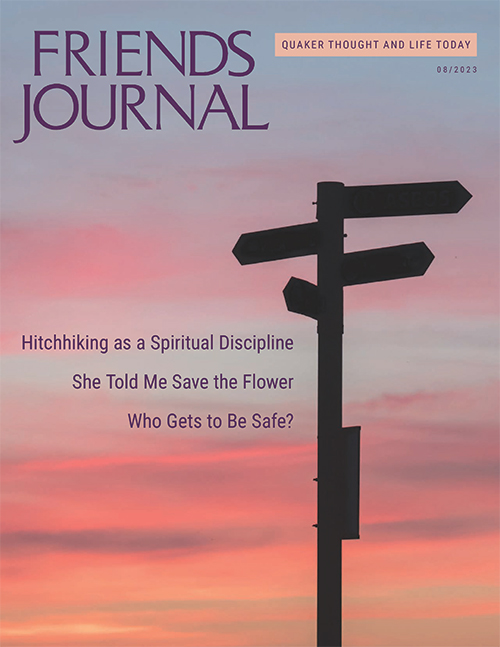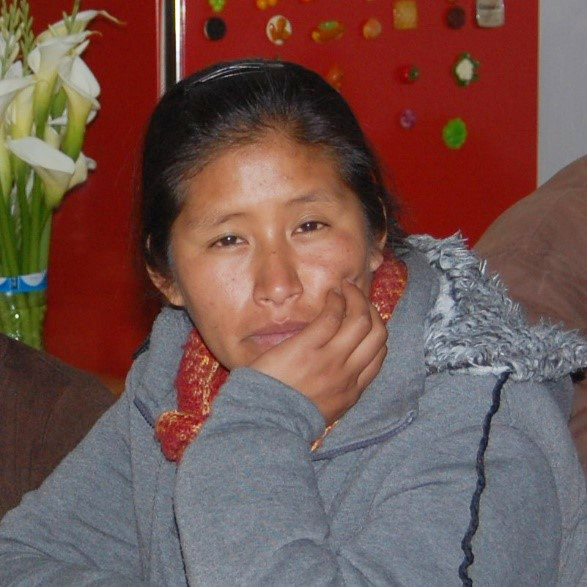Quakers and Alternatives to Violence in Bolivia
“Magaly! Magaly! Are we having a workshop?”
“Not this time,” I replied. “Today, I am bringing a friend from England to meet you.” Graham and I had just entered a maximum security prison in La Paz, Bolivia, leaving the guards behind.
Similar to prisons in other Latin American countries, the guards at Chonchocoro Prison are only at the gate. Once inside, visitors are pretty much on their own. The inmates roam freely throughout their area, with no bars and no locks. I assured Graham that my “friends deprived of liberty” would take care that we stayed safe. Bolivia has no death penalty, so Graham felt he was probably shaking the hands of murderers and was glad to know they appreciated me.
These friendships I’ve earned in many prisons are the result of my having introduced the people inside to the Alternatives to Violence Project (AVP). Developed in 1975 by Quakers and other visitors to a New York state prison in response to the request of prisoners, AVP has now spread to five continents. It is a volunteer-run program of experiential learning workshops that seek to develop skills for peaceful conflict resolution. It is often transformative. One formerly incarcerated friend said, “This taught me who I really am.” I can say the same for myself. AVP has been the focus of my life and continues to help me learn.
In my Aymara childhood, I learned from my mother, Carmen, about the value of serving others. She was part of a large family in a traditional village on the Altiplano plateau, where life is hard. At age four, she persuaded her father to let her attend first grade with her older brother. She excelled and ached to continue learning, but when Carmen completed third grade at age seven, her father took her to work as a servant for a wealthy family in La Paz. There she spent ten years in painful servitude, sleeping on a cold floor with only scraps of cardboard for bedding and being beaten frequently. Her father collected her salary monthly to help support her younger siblings.
My mother developed a commitment to supporting other women to have a better life. When she returned to her rural community at age 17, she easily spoke her mind and was chosen to represent the community in a women’s rights group. Despite her lack of education, she was active in politics, advocating for better lives for women. She has inspired me, and now she feels rewarded by my accomplishments in serving others.
I found Quakers in 2002, when I was in my senior year of high school. Through a friend, I met a friendly group of young people who were members of the Christian Club of Young Friends. I accepted an invitation to attend their meeting. Although the service was similar to other churches I had attended, there was something different with the Quakers: I felt truly appreciated, that my life and poverty were not just observed with pity. Friends were motivated to improve my situation with actions, not just prayers. I decided to become a Quaker myself and live out those ideals. Through Friends, I also learned about the Bolivian Quaker Education Fund (BQEF), which awarded me a scholarship that enabled me to complete my undergraduate degree in sociology.
Left: AVP construction activity. Right: Students cooperate in jumping rope at the AVP Student Residence in Sorata, Bolivia.
Many are surprised to learn that Bolivia has the world’s third largest population of Friends, after Kenya and the United States, and that nearly all of us are Aymara. Certain aspects of our traditional indigenous culture are similar to Quaker values. Community leadership is driven by the search for the common good. The leader is the servant of the community, and the authority must rotate annually among all the families in the community. In many rural communities, decisions are still made in the traditional way. To seek a solution to a problem, all the adults are seated in a circle, waiting in silence for inspiration. Sometimes, one member stands and offers a prayer for guidance.
Although these positive values are shared, our traditional culture also has a strong component of violence. Our Quaker faith builds on the positive aspects of our cultural heritage, but is transformed by the belief in peace and nonviolence, accepting and respecting each individual as well as oneself. Seeking Truth in this way has uplifted me, dramatically enriching my life and my ability to serve.
In 2010, I decided to write my senior thesis for my sociology degree on the culture of the infamous San Pedro Prison in La Paz. BQEF had offered us the experience of AVP, and I had become an AVP facilitator. When I interviewed inmates to gather information for my thesis, I quickly realized how helpful AVP could be to them. I organized a workshop, and it was so successful that more workshops followed. When the prison administrators heard of the resulting improvement in behavior, they asked me to take it to more prisons. Today there are AVP programs in all prisons in major Bolivian cities and in many smaller ones too. When I look in the eyes of the men after a workshop and see them transformed, it brings tears to my eyes.

My commitment to service and Friends has led to more projects with gratifying results. In early 2019, I was establishing a nonprofit organization for my AVP work, but was told it needed to encompass more than prison work. Just then I learned that my longtime California friend Barbara Flynn was seeking an organization in Bolivia to accept funds and administer a student residence in Sorata. So together we opened the AVP Student Residence just in time for the new school year. It provides a home for young people from remote rural villages to spend school weeks in a supportive environment, giving them access to education and a wide range of support services.
Later that year we implemented AVP workshops for prevention of violence in relationships, as a way to address Bolivia’s very high rate of domestic violence. In 2022, these workshops served 20 high schools, with 2,300 students, 250 parents, and 150 faculty members benefiting as participants. One teenager who was regularly beaten by his father said, “Now I know what kind of man I want to be.”
Throughout my work, I have met people from many countries whom I consider my spiritual guides: people who guide me, listen to me, accept me, and love me. I have felt their affection, trust, and unconditional support. We are all part of a great family. I feel committed to being someone who continues to learn and serve others with joy—for me, this work is my life’s purpose.







I was elated to see the article “Quakers and Alternatives to Violence in Bolivia” by Magaly in this August. I’ve been to Bolivia several times since 2010 on Quaker tours. These tours visited some the students sponsored by the Bolivian Quaker Education Fund, projects funded by Quaker Bolivia Link and Magaly’s own work supported by the Waljok foundation. I’ve met Magaly several times and think her charisma and service in reaching prisoners with Alternatives to Violence Projects in Bolivian more recently presenting workshops in schools is an outstanding example of Quaker service guided by our testimonies. She is having an enormous effect on Bolivian society at large far beyond our Quaker communities. When I think that she is just one of the over 250 graduates who benefited from BQEF scholarship support, I am amazed at the extensive reach of small amounts of funding Friends have sent to Bolivia. None of the three organizations has a very large budget by non-profit standards, and all of them have had a lasting impact.
What an enlightening and inspiring article! Thanks, Barbara Christwitz with Lake County Friends Worship Group of Northern California